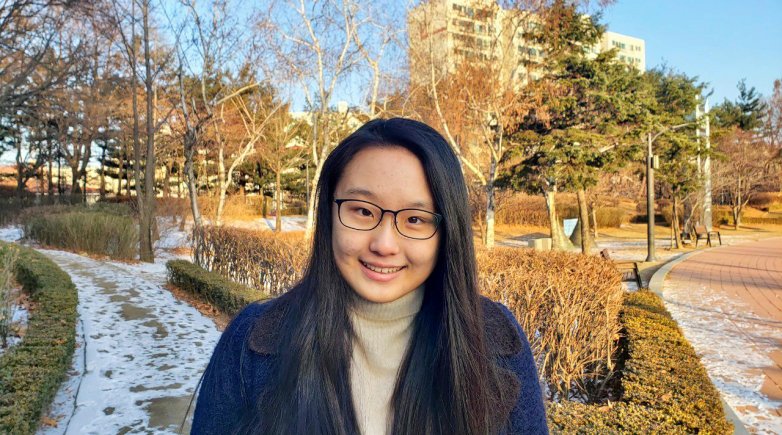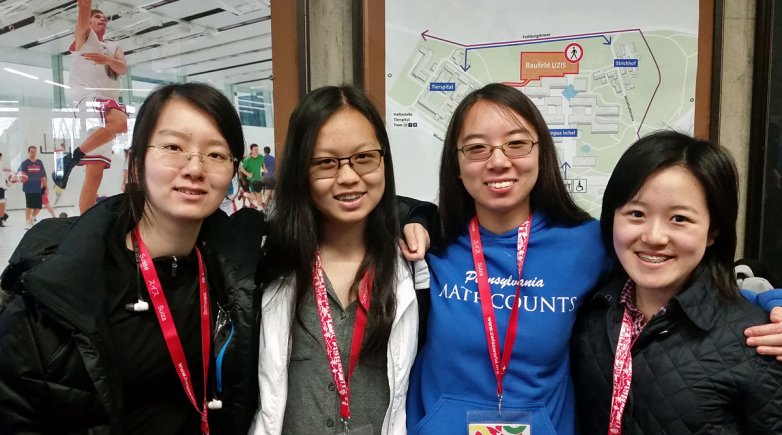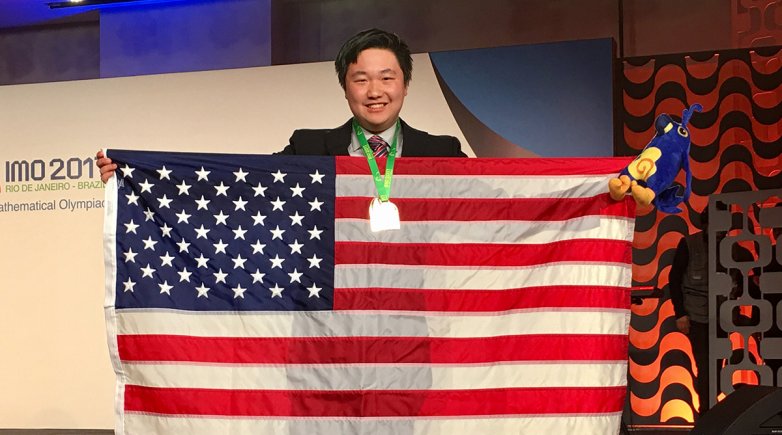Yunseo Choi '21 wins gold at international math event
Exeter senior leads the U.S. team to a runner-up finish in the European Girls Math Olympiad.
Math brought Yunseo Choi ’21 to Exeter.
The Exeter Math Club’s exploits on the national and international stages first made her aware of the Academy. The math program was the reason she applied, and ultimately why she chose to enroll.
It adds up, then, that as she prepares to graduate, she does so as one of Exeter’s most accomplished math students.
Choi won an individual gold medal and led the team from the United States to a second-place finish in the 2021 European Girls Mathematics Olympiad over the weekend. That performance came a month after she flexed her math muscles to take first place in the 80th Regeneron Science Talent Search and claim the $250,000 prize that comes with it.
“Exeter Math Club has meant so much to me over the years,” she said. “It is where I fell in love with mathematics and the amazing people that pursue it. I have nothing to express but gratitude towards our advisers. I also made many close friends through Exeter Math Club and am looking forward to collaborating with them further in the future.”
Choi, a resident of Seoul, South Korea, is studying remotely. The 13-hour time difference between Exeter and home further complicates a schedule that includes juggling her classes with her heady extracurricular pursuits.
“Because Math Olympiad takes constant training to be in shape, and I couldn’t do as much math until the end of the Regeneron STS, I was afraid that I would let the team down,” she said.
“After STS, I calmed myself down and started preparing for the EGMO for many hours a day. I think that what helped me the most was not only reviewing Math Olympiad concepts, but also acquainting specifically with the flavor of the EGMO problems.”
The EGMO, founded in 2012, allows participating countries to send up to four students to the competition. These students compete individually, and write two contest papers on consecutive days, with three problems on each day. For each problem, the students receive an integer score out of a maximum of seven marks. A perfect score is 42.
Choi scored 37 points. Just four participants scored higher. She recounted the grueling two-day competition:
“During the first hour of Day 1, I couldn’t solve any problems. I was starting to get a bit anxious, but during the second hour, I solved the first problem, which was a relief. I then spent the next hour thinking about both of the remaining questions and decided to spend the rest of my time on the third problem. The third problem was hard, but as hard as it was, it was exciting when all the pieces came together! When I finished writing up my solution for this problem, I had less than a half an hour of the contest left. To this day, I do not know how to solve the second problem of Day 1, and so I don’t have regrets about how the contest went.
“The first problem of Day 2 was geometry. It was harder than most first problems, but I was able to solve it within the first hour. The second problem was combinatorics. Luckily, we had studied this type of combinatorics in Math Club before, and so, I could approach the problem with less fear. The problem still took me a while. After the second problem, I started the third problem but without too much hope as problem difficulty generally rises towards the end of the test. And so, it was a pleasant surprise when I solved the problem after only a few tries! The trick was to interpret the equations solely algebraically despite its number theoretical significance, and taking real analysis at PEA this term helped me approach the problem with an algebraic mindset.”
Choi said representing the United States in EGMO has been a dream of hers since the eighth grade. She will attend Harvard University in the fall.


